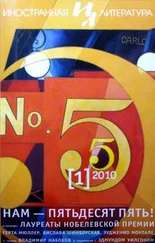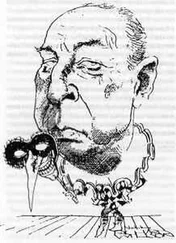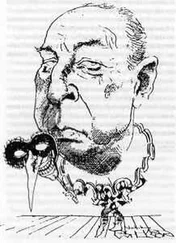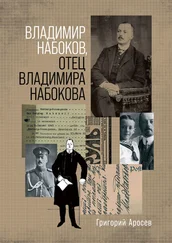Владимир Набоков - Vladimir Nabokov Pnin
Здесь есть возможность читать онлайн «Владимир Набоков - Vladimir Nabokov Pnin» весь текст электронной книги совершенно бесплатно (целиком полную версию без сокращений). В некоторых случаях можно слушать аудио, скачать через торрент в формате fb2 и присутствует краткое содержание. Жанр: Классическая проза, на английском языке. Описание произведения, (предисловие) а так же отзывы посетителей доступны на портале библиотеки ЛибКат.
- Название:Vladimir Nabokov Pnin
- Автор:
- Жанр:
- Год:неизвестен
- ISBN:нет данных
- Рейтинг книги:4 / 5. Голосов: 2
-
Избранное:Добавить в избранное
- Отзывы:
-
Ваша оценка:
- 80
- 1
- 2
- 3
- 4
- 5
Vladimir Nabokov Pnin: краткое содержание, описание и аннотация
Предлагаем к чтению аннотацию, описание, краткое содержание или предисловие (зависит от того, что написал сам автор книги «Vladimir Nabokov Pnin»). Если вы не нашли необходимую информацию о книге — напишите в комментариях, мы постараемся отыскать её.
Vladimir Nabokov Pnin — читать онлайн бесплатно полную книгу (весь текст) целиком
Ниже представлен текст книги, разбитый по страницам. Система сохранения места последней прочитанной страницы, позволяет с удобством читать онлайн бесплатно книгу «Vladimir Nabokov Pnin», без необходимости каждый раз заново искать на чём Вы остановились. Поставьте закладку, и сможете в любой момент перейти на страницу, на которой закончили чтение.
Интервал:
Закладка:
The conductor entered; did not awake the soldier; promised the women he would let them know when they would be about to arrive; and presently was shaking his head over Pnin's ticket. The Cremona stop had been abolished two years before.
'Important lecture!' cried Pnin. 'What to do? It is a catastroph!'
Gravely, comfortably, the grey-headed conductor sank into the opposite seat and consulted in silence a tattered book full of dog-eared insertions. In a few minutes, namely at 3 .08, Pnin would have to get off at Whitchurch; this would enable him to catch the four o'clock bus that would deposit him, around six, at Cremona.
'I was thinking I gained twelve minutes, and now I have lost nearly two whole hours,' said Pnin bitterly. Upon which, clearing his throat and ignoring the consolation offered by the kind grey-head ('You'll make it'), he took off his reading glasses, collected his stone-heavy bag, and repaired to the vestibule of the car so as to wait there for the confused greenery skimming by to be cancelled and replaced by the definite station he had in mind.
2
Whitchurch materialized as scheduled. A hot, torpid expanse of cement and sun lay beyond the geometrical solids of various clean-cut shadows. The local weather was unbelievably summery for October. Alert, Pnin entered a waiting-room of sorts, with a needless stove in the middle, and looked around. In a solitary recess, one could make out the upper part of a perspiring young man who was filling out forms on the broad wooden counter before him.
'Information, please,' said Pnin. 'Where stops four o'clock bus to Cremona?'
'Right across the street,' briskly answered the employee without looking up.
'And where possible to leave baggage?'
'That bag? I'll take care of it.'
And with the national informality that always nonplussed Pnin, the young man shoved the bag into a corner of his nook.
'Quittance?' queried Pnin, Englishing the Russian for 'receipt' (kvtantsiya).
'What's that?'
'Number?' tried Pnin.
'You don't need a number,' said the fellow, and resumed his writing.
Pnin left the station, satisfied himself about the bus stop, and entered a coffee shop. He consumed a ham sandwich, ordered another, and consumed that too. At exactly five minutes to four, having paid for the food but not for an excellent toothpick which he carefully selected from a neat little cup in the shape of a pine cone near the cash register, Pnin walked back to the station for his bag.
A different man was now in charge. The first had been called home to drive his wife in all haste to the maternity hospital. He would be back in a few minutes.
'But I must obtain my valise!' cried Pnin.
The substitute was sorry but could not do a thing.
'It is there!' cried Pnin, leaning over and pointing.
This was unfortunate. He was still in the act of pointing when he realized that he was claiming the wrong bag. His index finger wavered. That hesitation was fatal.
'My bus to Cremona!' cried Pnin.
'There is another at eight,' said the man.
What was our poor friend to do? Horrible situation! He glanced streetward. The bus had just come. The engagement meant an extra fifty dollars. His hand flew to his right side. It was there, slava Bogu (thank God)! Very well! He would not wear his black suit--vot i vsyo (that's all). He would retrieve it on his way back. He had lost, dumped, shed many more valuable things in his day. Energetically, almost light-heartedly, Pnin boarded the bus.
He had endured this new stage of his journey only for a few city blocks when an awful suspicion crossed his mind. Ever since he had been separated from his bag, the tip of his left forefinger had been alternating with the proximal edge of his right elbow in checking a precious presence in ru8 inside coat pocket. All of a sudden he brutally yanked it out. It was Betty's paper.
Emitting what he thought were international exclamations of anxiety and entreaty, Pnin lurched out of his seat. Reeling, he reached the exit. With one hand the driver grimly milked out a handful of coins from his little machine, refunded him the price of the ticket, and stopped the bus. Poor Pnin landed in the middle of a strange town.
He was less strong than his powerfully puffed-out chest might imply, and the wave of hopeless fatigue that suddenly submerged his top-heavy body, detaching him, as it were, from reality, was a sensation not utterly unknown to rum. He found himself in a damp, green, purplish park, of the formal and funereal type, with the stress laid on sombre rhododendrons, glossy laurels, sprayed shade trees and closely clipped lawns; and hardly had he turned into an alley of chestnut and oak, which the bus driver had curtly told him led back to the railway station, than that eerie feeling, that tingle of unreality overpowered him completely. Was it something he had eaten? That pickle with the ham? Was it a mysterious disease that none of his doctors had yet detected? My friend wondered, and I wonder, too.
I do not know if it has ever been noted before that one of the main characteristics of life is discreteness. Unless a film of flesh envelops us, we die. Man exists only insofar as he is separated from his surroundings. The cranium is a spacetraveller's helmet. Stay inside or you perish. Death is divestment, death is communion. It may be wonderful to mix with the landscape, but to do so is the end of the tender ego. The sensation poor Pnin experienced was something very like that divestment, that communion. He felt porous and pregnable. He was sweating. He was terrified. A stone bench among the laurels saved him from collapsing on the sidewalk. Was his seizure a heart attack? I doubt it. For the nonce I am his physician, and let me repeat, I doubt it. My patient was one of those singular and unfortunate people who regard their heart ('a hollow, muscular organ,' according to the gruesome definition in Webster's New Collegiate Dictionary, which Pnin's orphaned bag contained) with a queasy dread, a nervous repulsion, a sick hate, as if it were some strong slimy untouchable monster that one had to be parasitized with, alas. Occasionally, when puzzled by his tumbling and tottering pulse, doctors examined him more thoroughly, the cariograph outlined fabulous mountain ranges and indicated a dozen fatal diseases that excluded one another. He was afraid of touching his own wrist. He never attempted to sleep on his left side, even in those dismal hours of the night when the insomniac longs for a third side after trying the two he has.
And now, in the park of Whitchurch, Pnin felt what he bad felt already on August 10, 1942, and February 15 (his birthday), 1937, and May 18, 1929, and July 4, 1920--that the repulsive automaton he lodged had developed a consciousness of its own and not only was grossly alive but was causing him pain and panic. He pressed his poor bald head against the stone back of the bench and recalled all the past occasions of similar discomfort and despair. Could it be pneumonia this time? He had been chilled to the bone a couple of days before in one of those hearty American draughts that a host treats his guests to after the second round of drinks on a windy night. And suddenly Pnin (was he dying?) found himself sliding back into his own childhood. This sensation had the sharpness of retrospective detail that is said to be the dramatic privilege of drowning individuals, especially in the former Russian Navy--a phenomenon of suffocation that a veteran psychoanalyst, whose name excapes me, has explained as being the subconsciously evoked shock of one's baptism which causes an explosion of intervening recollections between the first immersion and the last. It all happened in a flash but there is no way of rendering it in less than so many consecutive words.
Pnin came from a respectable, fairly well-to-do, St Petersburg family. His father, Dr Pavel Pnin, an eye specialist of considerable repute, had once had the honour of treating Leo Tolstoy for a case of conjunctivitis. Timofey's mother, a frail, nervous little person with a waspy waist and bobbed hair, was the daughter of the once famous revolutionary Umov (rhymes with' zoom off') and of a German lady from Riga. Through his half swoon, he saw his mother's approaching eyes. It was a Sunday in mid winter. He was eleven. He had been preparing lessons for his Monday classes at the First Gymnasium when a strange chill pervaded his body. His mother took his temperature, looked at her child with a kind of stupefaction, and immediately called her husband's best friend, the paediatrician Belochkin. He was a small, beetle-browed man, with a short beard and cropped hair. Easing the skirts of his frock coat, he sat down on the edge of Timofey's bed. A race was run between the doctor's fat golden watch and Timofey's pulse (an easy winner). Then Timofey's torso was bared, and to it Belochkin pressed the icy nudity of his ear and the sandpapery side of his head. Like the flat sole of some monopode, the ear ambulated all over Timofey's back and chest, gluing itself to this or that patch of skin and stomping on to the next. No sooner had the doctor left than Timofey's mother and a robust servant girl with safety-pins between her teeth encased the distressed little patient in a straitjacket-like compress. It consisted of a layer of soaked linen, a thicker layer of absorbent cotton, and another of tight flannel, with a sticky diabolical oilcloth--the hue of urine and fever--coming between the clammy pang of the linen next to his skin and the excruciating squeak of the cotton around which the outer layer of flannel was wound. A poor cocooned pupa, Timosha (Tim) lay under a mass of additional blankets; they were of no avail against the branching chill that crept up his ribs from both sides of his frozen spine. He could not close his eyes because his eyelids stung so. Vision was but oval pain with oblique stabs of light; familiar shapes became the breeding places of evil delusions. Near his bed was a four-section screen of polished wood, with pyrographic designs representing a bridle path felted with fallen leaves, a lily pond, an old man hunched up on a bench, and a squirrel holding a reddish object in its front paws. Timosha, a methodical child, had often wondered what that object could be (a nut? a pine cone?), and now that he had nothing else to do, he set himself to solve this dreary riddle, but the fever that hummed in his head drowned every effort in pain and panic. Still more oppressive was his tussle with the wallpaper. He had always been able to see that in the vertical plane a combination made up of three different clusters of purple flowers and seven different oak leaves was repeated a number of times with soothing exactitude; but now he was bothered by the undismissible fact that he could not find what system of inclusion and circumscription governed the horizontal recurrence of the pattern; that such a recurrence existed was proved by his being able to pick out here and there, all along the wall from bed to wardrobe and from stove to door, the reappearance of this or that element of the series, but when he tried travelling right or left from any chosen set of three inflorescences and seven leaves, he forthwith lost himself in a meaningless tangle of rhododendron and oak. It stood to reason that if the evil designer--the destroyer of minds, the friend of fever--had concealed the key of the pattern with such monstrous care, that key must be as precious as life itself and, when found, would regain for Timofey Pnin his everyday health, his everyday world; and this lucid--alas, too lucid--thought forced him to persevere in the struggle.
Читать дальшеИнтервал:
Закладка:
Похожие книги на «Vladimir Nabokov Pnin»
Представляем Вашему вниманию похожие книги на «Vladimir Nabokov Pnin» списком для выбора. Мы отобрали схожую по названию и смыслу литературу в надежде предоставить читателям больше вариантов отыскать новые, интересные, ещё непрочитанные произведения.
Обсуждение, отзывы о книге «Vladimir Nabokov Pnin» и просто собственные мнения читателей. Оставьте ваши комментарии, напишите, что Вы думаете о произведении, его смысле или главных героях. Укажите что конкретно понравилось, а что нет, и почему Вы так считаете.










